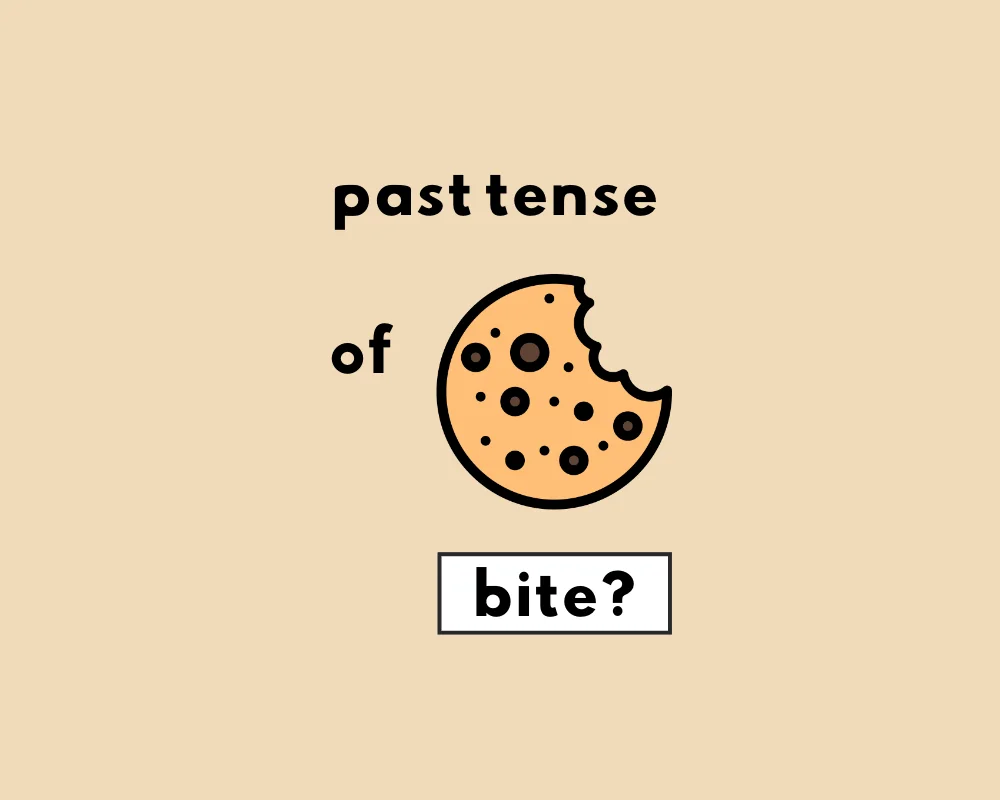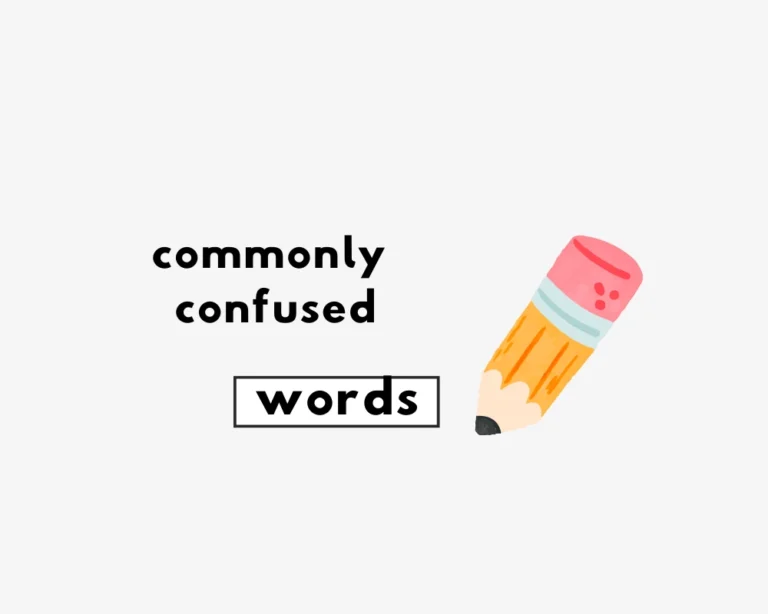
Get a bite of this grammar lesson on proper verb forms!
What’s the past tense of “bite”?
The verb and action of biting (present participle) describes when we use our teeth to cut into or through stuff, usually food . . . like when you bite into a sandwich (present tense). Continue reading for the key takeaways on the irregular verb (though highly regular action), to bite.
Verb forms of “bite”
- Bite is an irregular verb (i.e., it’s present past future tenses don’t end in -ed).
- Bit is the simple past tense of bite.
- Bitten is the past participle form of bite, used in perfect/continuous tense constructions.
| present | past | future | |
| simple | I bite | I bit | I will bite |
| continuous | I am biting | I was biting | I will be biting |
| perfect | I have bitten | I had bitten | I will have bitten |
| perfect continuous | I have been biting | I had been biting | I will have been biting |
Irregular verbs similar to “bite”
See the following chart of verbs with different forms in the present, past and as a past participle, (like bite/bit/bitten).
| base verb | past tense | past participle |
| speak | spoke | spoken |
| write | wrote | written |
| bite | bit | bitten |
| eat | ate | eaten |
| hide | hid | hidden |
| ride | rode | ridden |
When to use “bit” or “bitten”
Simple past tense: She bit the cookie in half.
Past perfect tense: She had been badly bitten by the dog.
The past participle form of a verb, (e.g., bitten) conjoins with auxiliary verbs had + been to form perfect/progressive tenses. When other verbs, such as had and been, are in the same sentence as the main verb, then the sentence is in a perfect or progressive tense, and not the simple past.
The past perfect tense is constructed by had [auxiliary] + bitten [past participle]. The simple past tense doesn’t use a helper verb (or auxiliary), so this makes differentiating between them straightforward.
“Bite” / “bit” / “bitten”, used in sentences
| Examples: bite, used in sentences |
|---|
| A wild animal may bite if it is frightened.
Some people bite their nails when they feel nervous. Mosquito bites can itch for days, and finding relief from the bite is half the battle. Does your dog bite? He was curious about how it would taste, so he took a small bite. |
| Examples: bit/bitten, used in sentences |
|---|
| Both sisters had bitten their nails as children.
The hamster bit the child. She was badly bitten by the dog. The patient had been bitten by a poisonous snake. Has your dog ever bitten you? |
Practice using the verb in different tenses with example sentences to memorize the correct forms.
Practice questions: tenses of ‘bite’
| Complete the sentence with the correct verb form. | Options: |
|---|---|
| 1. She ___ by a mosquito several times today. | a. bites b. bit c. was bitten d. biting |
| 2. The snake ___ him last summer. | a. bites b. bit c. was bitten d. biting |
| 3. He ___ his nails for hours. | a. bites b. bit c. was bitten d. biting |
| 4. Dogs ___ when they are hungry. | a. bites b. bit c. was bitten d. biting |
| 5. A mosquito ___ me! | a. bites b. bit c. was bitten d. biting |
| 6. He __ a small piece of the pie before throwing it out. | a. bites b. bit c. was bitten d. biting |
| Select the correct tense the sentence is written in: | |
| 7. He bit into his sandwich. | a. simple present b. present perfect c. simple past d. past perfect |
| 8. Has your dog ever bitten you? | a. simple present b. present perfect c. simple past d. past perfect |
| 9. Tom had been bitten by a dog when he was thirteen. | a. simple present b. present perfect c. simple past d. past perfect continuous |
| 10. She’s biting her nails again. | a. simple present b. present continuous c. simple past d. past perfect |
Answers
- b
- c
- c
- b
- a
- b
- d
- a
- b
- d
Idioms/phrases with bite
| phrase | meaning |
|---|---|
| to bite one’s tongue or hold one’s tongue | To refrain from saying something or speaking one’s mind in a situation for fear of offending someone. |
| your bark is bigger than your bite | Said when someone tries to appear threatening though is not. |
| to grab a bite | Literal; to get something to eat. |
| don’t let the bed bugs bite! | Meaning sleep well or goodnight, |
| to bite your nose to spite your face | To seek revenge on another in a way that is ultimately more harmful towards oneself. |
| don’t bite off more than you can chew | To take on more responsibility than you can handle. |
| don’t bite the hand that feeds you | Don’t treat poorly those that take care of you/those on whom you depend. |
| how do you eat an elephant? One bite at a time. | The way to accomplish a difficult task is by tackling one thing at a time. |
Origin of the verb bite
From etymology online on bite (v.):
Old English bitan “to pierce or cut with the teeth” (class I strong verb; past tense bat, past participle biten), from Proto-Germanic *beitanan.
Other commonly confused verb tenses
- What’s the past tense of spread?
- What’s the past tense of lead?
- What’s the past tense of choose?
- What’s the past tense of fly?
- What’s the past tense of lay?
- What’s the past tense of drive?
- What’s the past tense of draw?
Learn more about verbs
| Types of verbs & verb tenses | what’s the past tense of …? |
|---|---|
| forms of ‘to be’ | … seek? |
| auxiliary verbs | … teach? |
| present tense | … catch? |
| future tense | … buy? |
| past tense | … read? |
| perfect tense | … ring? |
| transitive vs. intransitive | … drive? |
| participles | … throw? |
| irregular verbs | … lead? |
| modals | … win? |
Worksheet
Question 1: Which is most important for proper grammar?
Question 2: Grammar rules help with:
Question 3: What is the main focus of this grammar content?
Question 4: Which is most important for proper grammar?
Question 5: Grammar rules help with:
Question 6: What is the main focus of this grammar content?
Question 7: Which is most important for proper grammar?
Question 8: Grammar rules help with:
Question 9: What is the main focus of this grammar content?
Question 10: Which is most important for proper grammar?
Which aspect is most important when learning grammar?
How can you improve your grammar skills?











